- Home
- slideshows
- miscellaneous
- There's a big difference between good and bad fat - here's how to pick the best heart-healthy fats
There's a big difference between good and bad fat - here's how to pick the best heart-healthy fats
We know some fats do damage to the body. One of the worst offenders is trans fat.

Trans fats come from both artificial and natural sources.
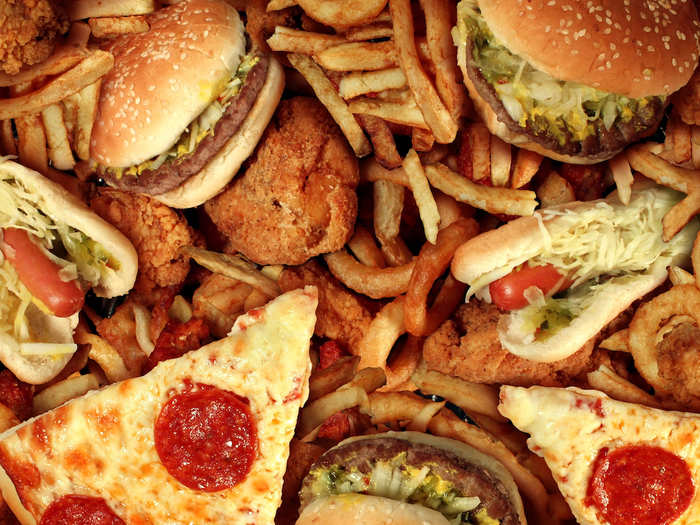
Artificial sources of trans fat include vegetable oils that are laboratory-heated to prevent spoilage, as well as deep-fryer oils, margarines, and packaged foods like frozen pizzas and cookies.
Researchers estimate that during the heyday of trans fats in the 1990s, they led to roughly 50,000 preventable deaths every year in the US.
The FDA is now in the process of rolling out a ban. Companies have until June 18, 2018 to stop using trans fats, though many food makers are simply replacing those trans fats with interesterified fat, which may not be any better for us.
"There's clear evidence that trans fats are bad," said professor Gary Fraser of the Loma Linda School of Public Health, who's studied fats for decades.

Some small amounts of trans fats are naturally found in some meat and dairy products like butterfat and beef, but it’s not clear whether they are as harmful as artificial trans fats.
Saturated fat isn't quite as bad as trans fat, but it's good to limit intake of saturated fats from things like red meat, coconut oil, and cheese.

Some cardiologists have suggested that saturated fat isn't the artery-clogger it was once thought to be, but research suggests most people are still better off nibbling limited doses of these foods.
Most naturally-occurring saturated fats come from animal sources, like beef, pork, skinned poultry, butter, cream, and cheeses.
One 2010 Harvard study found that people who swapped out saturated fat for polyunsaturated fat in their diets reduced their risk of developing heart disease by 19%.

Source: Harvard
There are good fats out there. Some of the best fats are monounsaturated fats that come from plant sources.

Plant-based oils that are liquid at room temperature, as well as nuts, nut butters, seeds, and avocados all carry high doses of monounsaturated fat.
Like the name indicates, monounsaturated fats are fat molecules containing one (unsaturated) carbon bond. They come from plant sources, and include many liquid-at-room-temperature oils like olive, peanut, and sesame.
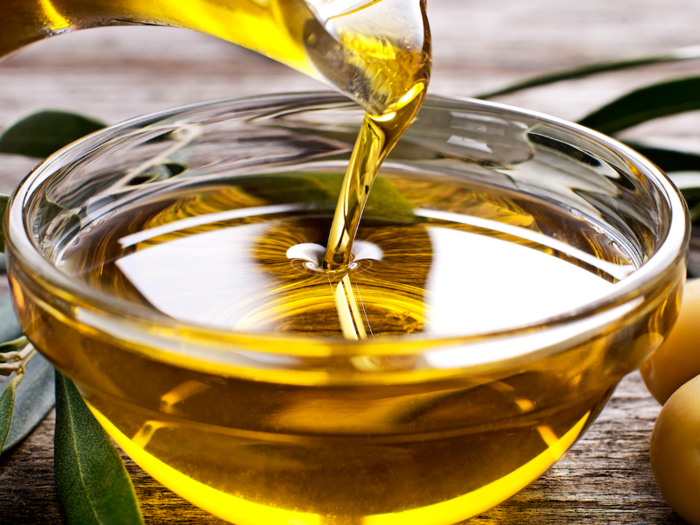
One of the reasons that monounsaturated fats like those found in nuts and seeds are so good for you is because they can actively lower your bad, LDL cholesterol. They do this while adding a dose of Vitamin E to your diet, which keeps your eyes and your immune system healthy.
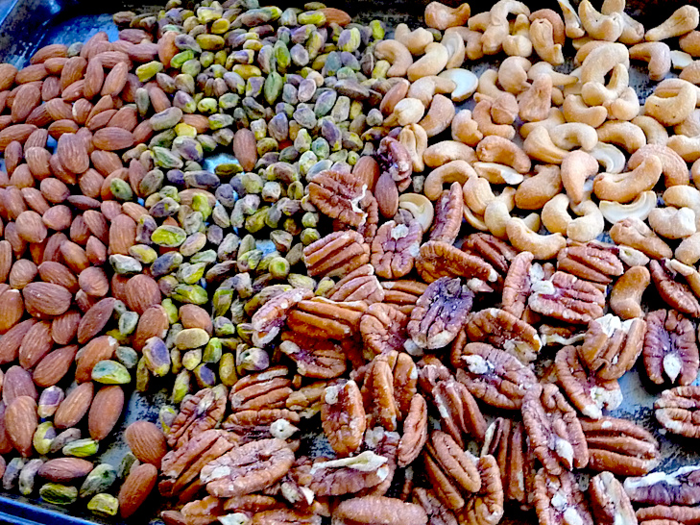
Source: American Heart Association
Polyunsaturated fats are good for us, too. Like monounsaturated fats, foods high in polyunsaturated fats include many oils that are liquid at room temperature.

They too help lower bad, LDL cholesterol levels. Foods high in polyunsaturated fat content include fish, sesame seeds (and tahini spread) chia, and flax, as well as many nuts.
Some of the best polyunsaturated fats are omega-6 and omega-3 fatty acids. These fats help repair and build our cells, reduce instances of heart disease, and can also have anti-inflammatory effects. They are essential fats the body can’t produce on its own.

Omega-6 fatty acid-rich foods include sunflower seeds, pine nuts, sunflower and soybean oils, and pecans.

Omega-6 fatty acids can help control your blood sugar and may reduce your risk for developing diabetes.
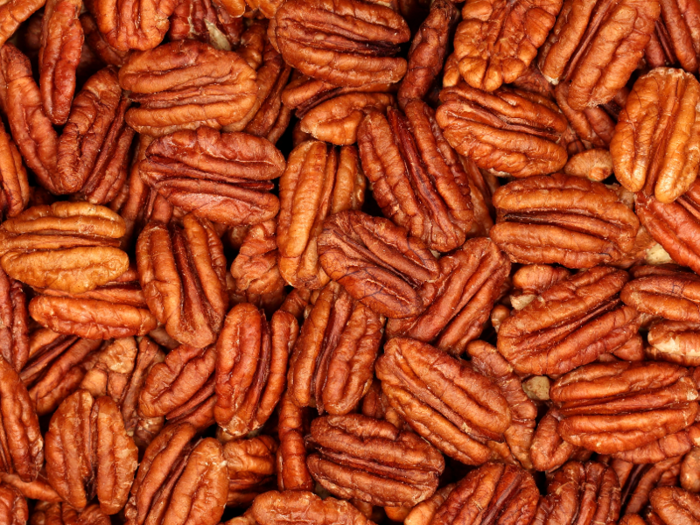
Source: National Institutes of Health
Omega-3’s are likewise great fatty acids. They can reduce the risk of abnormal heartbeat, slow the rate of heart-clogging plaque growth, reduce the amount of fat in your blood, and lower blood pressure a bit.

For these reasons, The American Heart Association recommends adults eat oily fish twice a week or more.
"Fatty fish like salmon, mackerel, herring, lake trout, sardines and albacore tuna are high in omega-3 fatty acids," the AHA says.
Foods rich in omega-3’s include walnuts, flax seeds and their oils, as well as oily fish like salmon and albacore tuna.
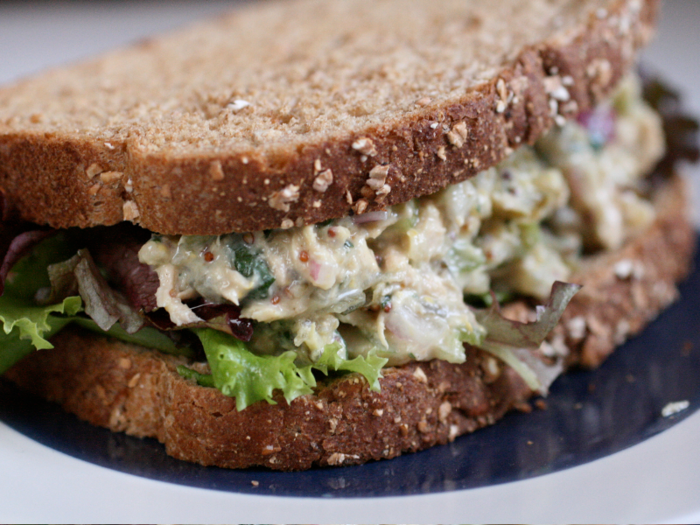
Scientific studies suggest omega-3’s may even slow cognitive decline in older adults without dementia.

Source: National Institutes of Health
Eggs, chicken, and beef also have some omega-3’s on board.

New research suggesting that foods like nuts and seeds may be heart-healthy not simply because of their mono and polyunsaturated fat content, but also because they're infused with more heart-helping proteins than, say, a piece of red meat.

Professor Gary Fraser from Loma Linda University has been studying fat for more than 20 years, and says that while low-fat diets clearly aren't the catch-all answer to a healthy diet, the solution is not to consume more fatty animal products, which can hurt heart health.
Instead, he suggests a plant-based, Mediterranean style diet, which is many dietitians' favorite suggestion too.

"There's clear evidence that trans fats are bad, probably saturated fats are bad, but the monos and the polys really shouldn't be under the microscope," Fraser said. "I think the focus should be on very low meat, or no meat, and lots of vegetables and nuts and seeds."
Popular Right Now
Popular Keywords
Advertisement